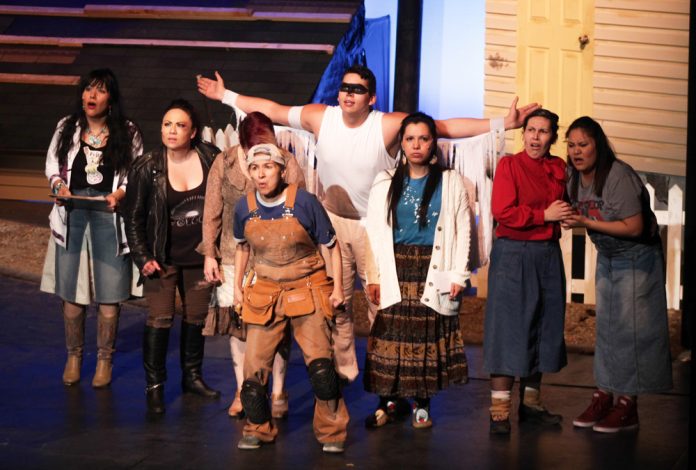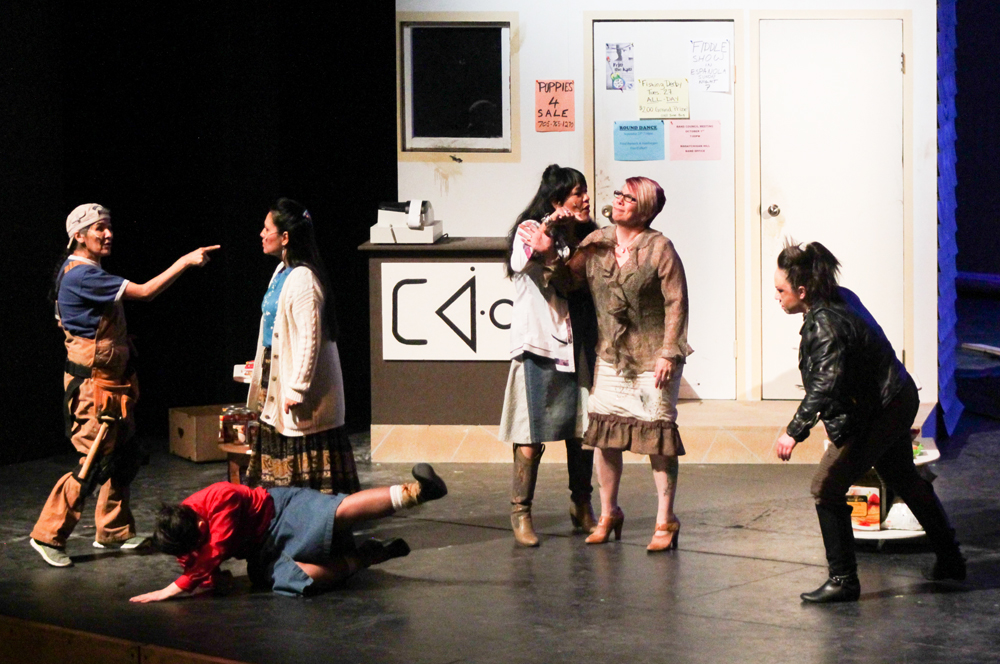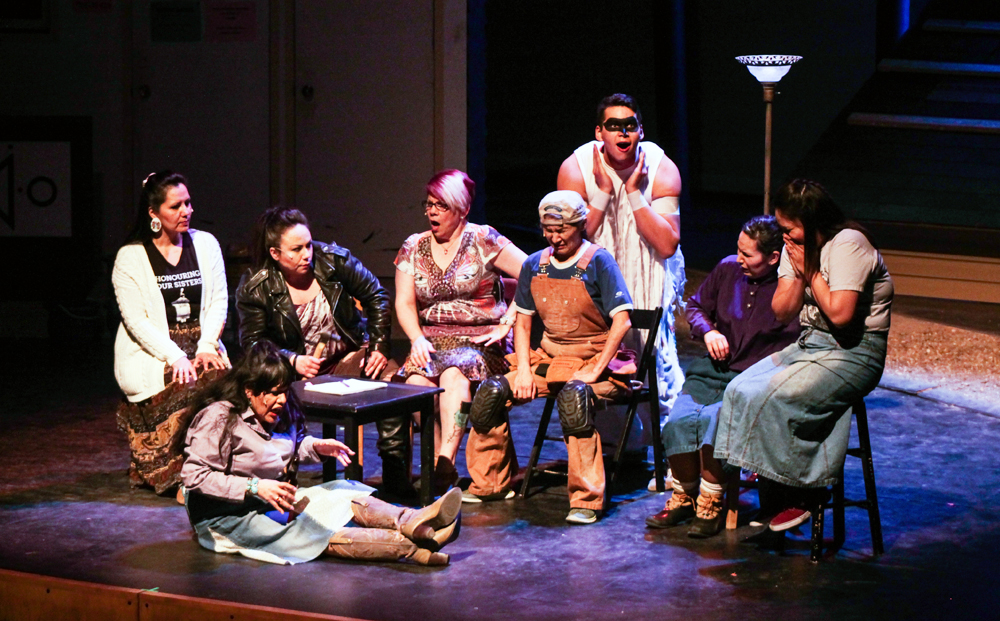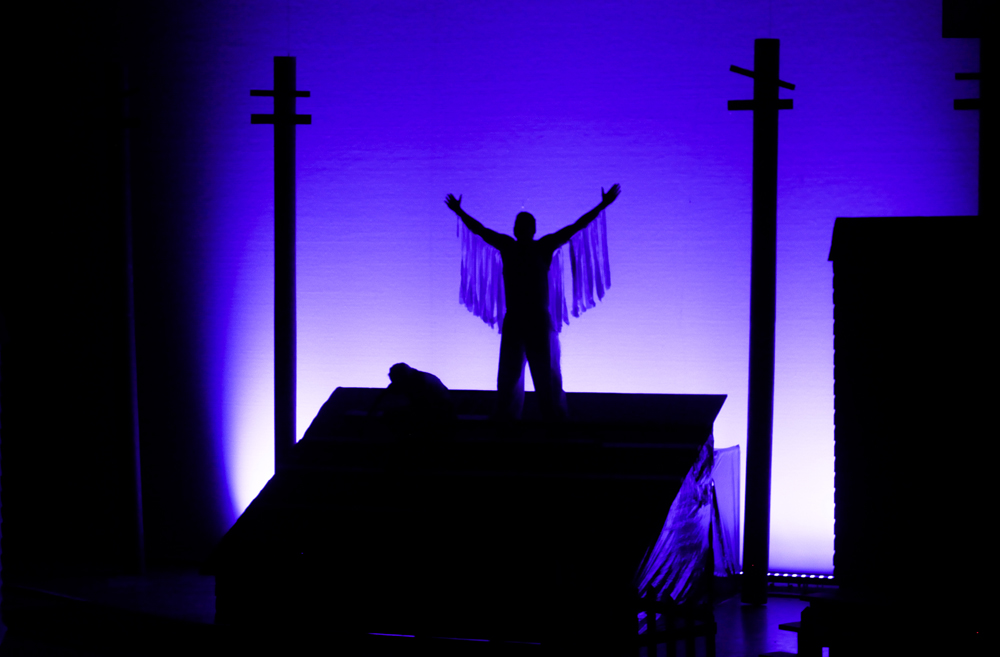
Seven unruly indigenous women embodied the pain, joy and tenacity of reserve life on the E.A. Rawlinson stage Saturday, rounding out a four-show run of Rez Sisters – a play about dreaming big at the world’s biggest bingo.
For director Roxanne Dicke, it’s a play Prince Albert needed to see. She said it’s one of the first productions with indigenous themes to come to the city in years.
“I felt that the city has a very high population of indigenous people,” she said, “and I believe theatre should reflect the community.”
With only a few minor hiccups, the performance was a powerful, emotionally rousing experience that swung wildly from hilarious to deeply sad. It was also innovative, making use of the electro-powwow music of A Tribe Called Red to help connect a 30-year-old play with contemporary struggles.
Dicke brought together eight aboriginal performers – only two of whom had ever graced a professional stage. Sophie Merasty was, by far, the most experienced. She comes from the same hometown as playwright Thomson Highway, who drew on his life in Brochet, Manitoba, to craft the seven women of Rez Sisters.
Merasty plays Pelajia Patchnoose, who launches the first act on a rooftop in the fictional reserve of Wasaychigan – known as “Wasy.” There, she looks off into the distance and dreams about a better life in Toronto.
For more on this story, see the March 28 print or e-edition of the Daily Herald.
More photos from Saturday’s performance:




